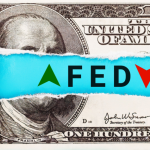Wako Megumi | Istock | Getty Images
Company: Toyo Suisan Kaisha (2875.T)
Business: Toyo Suisan Kaisha and its subsidiaries produce and sell food products in Japan and internationally. The company operates through the following segments: Seafood, Overseas Instant Noodles, Domestic Instant Noodles, Frozen and Refrigerated Foods, Processed Foods and Cold Storage. It purchases, processes, and sells seafood, and manufactures and sells a variety of products including instant cup and bag noodles, soup and processed foods.
Stock Market Value: Roughly 1 trillion Japanese yen (10,070.00 yen per share)
Activist: Nihon Global Growth Partners Management
Percentage Ownership: 3.8%
Average Cost: n/a
Activist Commentary: Nihon Global Growth Partners Management is a long-term investor in Japanese-listed companies that are growing rapidly in markets outside of Japan. Prior to founding Nihon Global in 2018, the firm’s principals were involved in managing a private equity program in Japan starting in 2004. As private equity investors, the principals have done nine buyouts, including three listed companies in Japan. All the principals’ prior private equity investments involved Japanese companies where a substantial portion of the growth was in markets outside of Japan.
What’s happening
In late April, Nihon Global issued a press release and presentation detailing its investment in Toyo Suisan and four shareholder proposals it has put forward to be voted on at the company’s upcoming 2024 general shareholders’ meeting: (i) increase the dividend payout ratio to 40%; (ii) repurchase 20 billion yen of the company’s shares; (iii) implement a director stock compensation program; and (iv) disclose the company’s cost of capital.
Behind the scenes
Toyo Suisan is an international conglomerate with multiple business segments across seafood, processed foods and refrigeration, but its crown jewel is its overseas instant noodle business. The company is a global leader in the space, specifically in North America which contributed 65% of consolidated earnings before interest and taxes in 2023 and is expected to surpass 70% in the coming years. Toyo Suisan’s brand of packaged instant noodles under the brand name Maruchan can be found in more than the dorm rooms of college students, dominating 70% of market share by volume and 45% by sales value in the US, and 75%+ in Mexico. The segment has enjoyed roughly 10.9% revenue and 12.8% EBIT compound annual growth rates from 2012 to 2024, as well as consistently healthy EBIT margins in the mid-teens.
Despite this staggering performance and status as a global leader in instant noodles in the U.S., Mexico, and Japan, the company appears deeply discounted to its intrinsic value. Nihon Global attributes this to the company’s (i) lack of strategic focus on its core assets; (ii) poor capital allocation, dedicating far too much capex on low ROA legacy businesses and being substantially overcapitalized; and (iii) a lack of attention to total shareholder return, which has underperformed peers in terms of total returns, as well as a lack of a formal shareholder return policy.
The ideal plan for Toyo Suisan would be to divest its legacy and non-core businesses and focus its capital and resources on growing its core noodles business. Legacy businesses have generated just 17% of the company’s 10-year cumulative earnings before interest, taxes, depreciation and amortization, yet they have been awarded 51% of the capex despite generating sub-5% return on assets. Assets like its valuable refrigerated warehouse segment, a very attractive business, would be better suited as a Japanese real estate investment trust or sold to a strategic acquirer. The same applies to its processed foods and seafood trading businesses, which would benefit from the scale and synergies provided by a strategic acquirer, yet they continue to languish in Toyo Suisan, hindering valuations and diverting attention from the company’s core growth areas all while delivering poor ROAs.
Nissin Foods (2897.T) is one of the largest and most respected instant noodle companies globally. Toyo Suisan has consistently outperformed Nissin Foods in North America, one of the most profitable and fastest-growing markets in the world. Yet, Nissin trades at a higher price-earnings multiple because it is a pure play focused on the instant noodle market. Nissin also has a clear 40% dividend payout ratio and conducts share buybacks. Toyo Suisan, on the other hand, is the last remaining company among its peers with no shareholder return policy and no stated targets regarding return on equity, dividend on equity, dividend payout ratio and total shareholder return, according to Nihon Global’s presentation. It also hasn’t conducted a share buyback in 17 years.
Becoming a pure-play noodle company with improved capital allocation practices would almost immediately close the roughly 8 times P/E multiple discount that Toyo Suisan trades at versus Nissin Foods. After that, as the dominant player in the North American market, Toyo Suisan would be in a prime position to be a global consolidator in the instant noodle market, a market that is prime for consolidation with two to three players dominating the industry. With this plan, Nihon Global estimates that the intrinsic value of the company is 17,300 yen per share or more, as opposed to the low 10,000 range.
However, while that type of an ambitious activist plan would be commonplace in the United States, activism in Japan is more of a jog than a sprint. It generally starts with shareholder proposals that by regulation can only address specific issues, such as capital allocation and dividends. Accordingly, Nihon Global has put forward four shareholder proposals to be voted on at the company’s annual meeting in June 2024: (i) increase the dividend payout ratio to 40%; (ii) repurchase 20 billion yen of the company’s shares; (iii) implement a director share compensation program which would make 40% of total compensation performance-linked and half of which would be stock; and (iv) disclose the company’s cost of capital. These are incredibly reasonable proposals. The dividend raise is an incremental increase of only 1.9% of December 2023 cash. The repurchase is only 4.6% of shareholders equity as of December 2023. The compensation program is equal to market standard, and the disclosure of cost of capital is consistent with the existing recommendations of the Tokyo Stock Exchange.
A word about shareholder proposals in Japan for those who are not familiar with them: They are like going before Judge Chamberlain Haller in the 1992 movie “My Cousin Vinny.” “That is a lucid, intelligent, well thought out objection. Overruled.” In other words, they rarely pass. Last year, 3% of corporate governance shareholder proposals were passed and 4% of balance sheet-based shareholder proposals were passed. That is part of an upward trend. But there is a lot of good news here. First, if passed they are binding – unlike in the U.S. Second, and more importantly, they do not need to pass to get the attention of management. Japanese business culture takes shareholder concerns seriously: If a proposal gets at least 20% of the votes, management will often act in some way that is consistent with it. Last year, 107 shareholder proposals received more than 20% approval from shareholders, and 49 received more than 30%, according to a study by law firm White & Case.
In this case, Nihon Global could potentially win here or receive upward of 40% of the vote, which is almost like a mandate in Japan. Last year at Toyo Suisan, a less experienced activist shareholder with negligible ownership who did not do any marketing or soliciting to support its more debatable proposal to amend the Articles of Incorporation received 19.8% of the vote. Moreover, the shareholder base here is 41% foreign and more likely to support a shareholder proposal. There is no “white knight” large shareholder and no cross holdings that support management. Nihon Global’s first three proposals are more likely to pass than its fourth proposal, as the first three require a majority of votes cast and the fourth proposal would require two-thirds of the votes cast. One last possibility that often happens in Japan is that Nihon Global could withdraw its proposals after meeting with management, who would agree to institute some of the recommendations. Senior management has thus far refused to meet with Nihon Global, but the firm has only been requesting a meeting since September 2023 and that is somewhat standard in Japan. Now that Nihon Global has escalated it to shareholder proposals, senior management may decide to meet with the firm, particularly as this is a next-generation senior management team, some of whom are American trained.
This activist campaign highlights three important themes in Japanese activist investing. First, it shows the opportunities available to activists in Japan where reasonable shareholder proposals could lead to significant shareholder value creation. Second, it shows the limitations of activism in Japan where ambitious plans, even if compelling and logical, such as divesting non-core businesses and focusing on the core business is a non-starter in the early stages of a campaign in Japan. Third, there is a trend in Asia of private equity investors turning to public company shareholder activism. While shareholder engagement in Japan is relatively new for public investors, private equity investors have been doing it for decades. Accordingly, it is the private equity investors who have the experience dealing with management teams of public Japanese companies. That is inviting a lot of former private equity investors into the space. Brian Doyle of Nihon Global and his team are a good example of this. Hiroyuki Otsuka, a former deputy head of Carlyle Group’s Japan business, recently raised approximately $1 billion dollars to launch Newton Investment Management, a Japanese engagement fund.
Ken Squire is the founder and president of 13D Monitor, an institutional research service on shareholder activism, and the founder and portfolio manager of the 13D Activist Fund, a mutual fund that invests in a portfolio of activist 13D investments.



